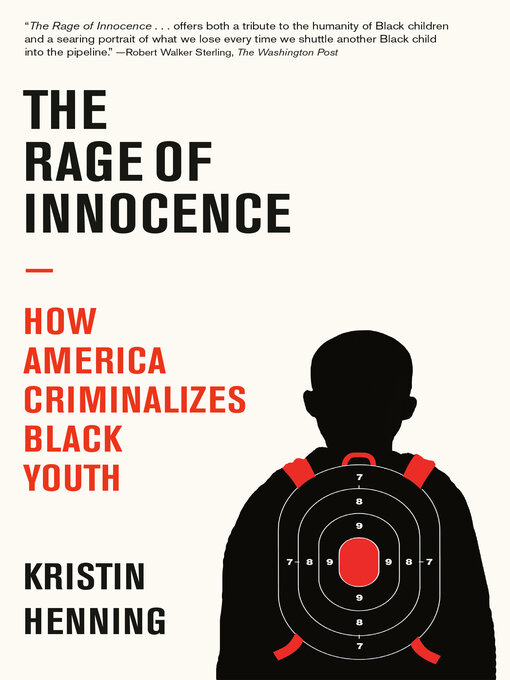
"Storytelling that can make people understand the racial inequities of the legal system, and...restore the humanity this system has cruelly stripped from its victims.” —New York Times Book Review
Drawing upon twenty-five years of experience representing Black youth in Washington, D.C.’s juvenile courts, Kristin Henning confronts America’s irrational, manufactured fears of these young people and makes a powerfully compelling case that the crisis in racist American policing begins with its relationship to Black children.
Henning explains how discriminatory and aggressive policing has socialized a generation of Black teenagers to fear, resent, and resist the police, and she details the long-term consequences of racism that they experience at the hands of the police and their vigilante surrogates. She makes clear that unlike White youth, who are afforded the freedom to test boundaries, experiment with sex and drugs, and figure out who they are and who they want to be, Black youth are seen as a threat to White America and are denied healthy adolescent development. She examines the criminalization of Black adolescent play and sexuality, and of Black fashion, hair, and music. She limns the effects of police presence in schools and the depth of police-induced trauma in Black adolescents.
Especially in the wake of the recent unprecedented, worldwide outrage at racial injustice and inequality, The Rage of Innocence is an essential book for our moment.
-
Creators
-
Publisher
-
Release date
September 28, 2021 -
Formats
-
Kindle Book
-
OverDrive Read
- ISBN: 9781524748913
-
EPUB ebook
- ISBN: 9781524748913
- File size: 1159 KB
-
-
Accessibility
-
Languages
- English
-
Reviews

Loading
Formats
- Kindle Book
- OverDrive Read
- EPUB ebook
subjects
Languages
- English
Why is availability limited?
×Availability can change throughout the month based on the library's budget. You can still place a hold on the title, and your hold will be automatically filled as soon as the title is available again.
The Kindle Book format for this title is not supported on:
×Read-along ebook
×The OverDrive Read format of this ebook has professional narration that plays while you read in your browser. Learn more here.